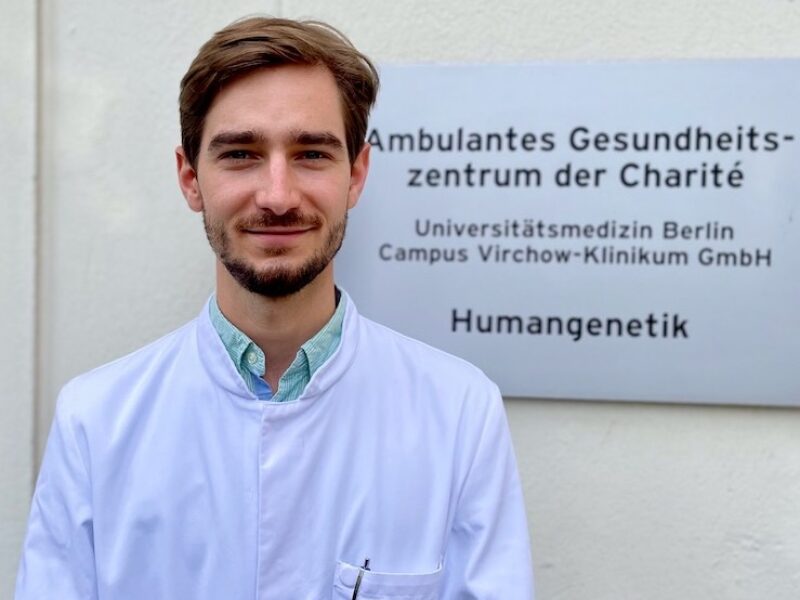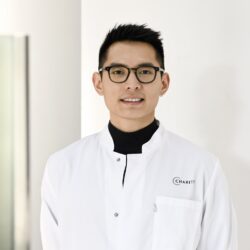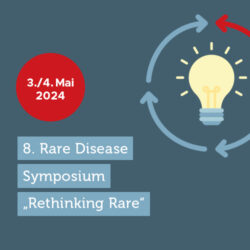Seltene Erkrankungen betreffen in acht von zehn Fällen Kinder und Jugendliche. Ihre Teilhabe am medizinischen Fortschritt hängt daher ganz entscheidend von engagierten Pädiater:innen ab, die sich dem Spagat zwischen Krankenbett und Labor mit Hingabe stellen. Um forschende Kinderärzt:innen auf diese anspruchsvolle Aufgabe vorzubereiten und ihnen die nötigen Freiräume für wissenschaftliches Arbeiten auf hohem Niveau zu verschaffen, setzt das von der Eva Luise und Horst Köhler Stiftung initiierte Forschungsnetzwerk Alliance4Rare unter anderem auch auf strukturierte Clinician Scientist Programme (CS4RARE). Diese ermöglichen den Teilnehmenden geschützte Forschungszeiten, in denen sie von klinischen Aufgaben freigestellt wissenschaftliche Projekte zu Seltenen Erkrankungen vorantreiben können.
Einige der Stipendiat:innen, die kürzlich ihre Arbeit aufgenommen haben, stellen sich und ihre Projekte vor.
Lieber Herr Dr. Boschann, Sie sind für das Clinician Scientist-Programm der Alliance4Rare ausgewählt worden. Was hat Sie motiviert, diesen besonderen Weg in Wissenschaft und Klinik einzuschlagen?
Die Humangenetik ist für mich das Querschnittsfach in der Medizin, da wir uns nicht nur mit einem Organsystem beschäftigen, sondern versuchen, die molekulare Grundlagen verschiedener Erkrankungen zu verstehen. Besonders fasziniert mich die enge Verbindung zwischen klinischer Arbeit und Forschung.
Wir stehen im engen interdisziplinären Austausch mit den anderen Fachgebieten und betreuen Betroffene jeglichen Alters. Die Fragestellungen, mit denen ich mich in der Klinik beschäftige, sind sehr vielfältig. In den letzten Jahren gab es große technologische Fortschritte im Bereich der genetischen Diagnostik. Dadurch werden jedes Jahr neue Krankheitsgene und Krankheitsmechanismen entschlüsselt. Wir gehen davon aus, dass bis zu 80% der bislang bekannten mehr als 7000 Seltenen Erkrankungen eine monogene Ursache haben und noch weitere 6000 zu entdecken sind. Darüber hinaus werden aktuell für immer mehr monogene Krankheitsbilder gentherapeutische Strategien getestet oder sind bereits zugelassen. Damit besteht die Hoffnung, diese Seltenen Erkrankungen nicht nur diagnostizieren, sondern zukünftig auch effektiv behandeln zu können.
Woran arbeiten Sie momentan und was möchten Sie erreichen?
Mein Forschungsschwerpunkt sind erbliche Bindegewebserkrankungen. Ein spezieller Fokus liegt auf syndromalen und familiär gehäuft auftretenden Aortenerkrankungen. Wir stellen derzeit eine Kohorte von Fällen zusammen, die bislang keine molekulare Diagnose erhalten haben, obwohl sie vergleichsweise früh eine Erweiterung oder Dissektion der Aorta entwickelt haben. In diesen Fällen bieten wir eine Genom- und Transkriptom-Analyse an, das heißt wir sequenzieren neben den 20.000 Genen einen Großteil des Genoms und suchen nach Abweichungen der Genexpression.
Ziel ist es, neue Mutationen in bekannten Genen zu finden, die bislang mittels konventioneller Diagnostik nicht erfasst wurden und neue Krankheitsgene zu detektieren. Im besten Fall endet damit die diagnostische Odyssee für viele Betroffene. Gleichzeitig sehen wir, dass die molekularen Ergebnisse einen großen Einfluss auf das individuelle Patientenmanagement und die Risikoabklärung innerhalb der Familie haben. Neben diesem translationalen Nutzen erhoffen wir uns, grundlagenwissenschaftliche Erkenntnisse über die molekularen Mechanismen der Entstehung von Aortenaneurysmen zu finden.
Insgesamt wünsche ich mir, dass der Stellenwert der genomischen Medizin, die die Grundlage für eine Präzisionsmedizin ist, gestärkt wird und somit mehr Betroffene Zugang zur Genomanalyse erhalten.
Welche Möglichkeiten eröffnet Ihnen die Unterstützung durch das das Clinician Scientist-Programm der Alliance4Rare im Arbeitsalltag, die Sie sonst nicht hätten?
Durch das Programm kann ich 50% meiner Arbeitszeit über die nächsten drei Jahre mit der Erstellung und Betreuung der Kohorte verbringen. Ich sehe die Familien in meiner Sprechstunde, entnehme die Proben und kann in weiteren Schritten die Genomdaten auswerten und spannende Varianten im Labor validieren. Für diese Zeit bin ich von weiteren klinischen Tätigkeiten freigestellt. Ohne die Förderung wäre dieses Forschungsvorhaben als reine “Feierabendforschung” im universitären Alltag eines Assistenzarztes nicht umzusetzen.



